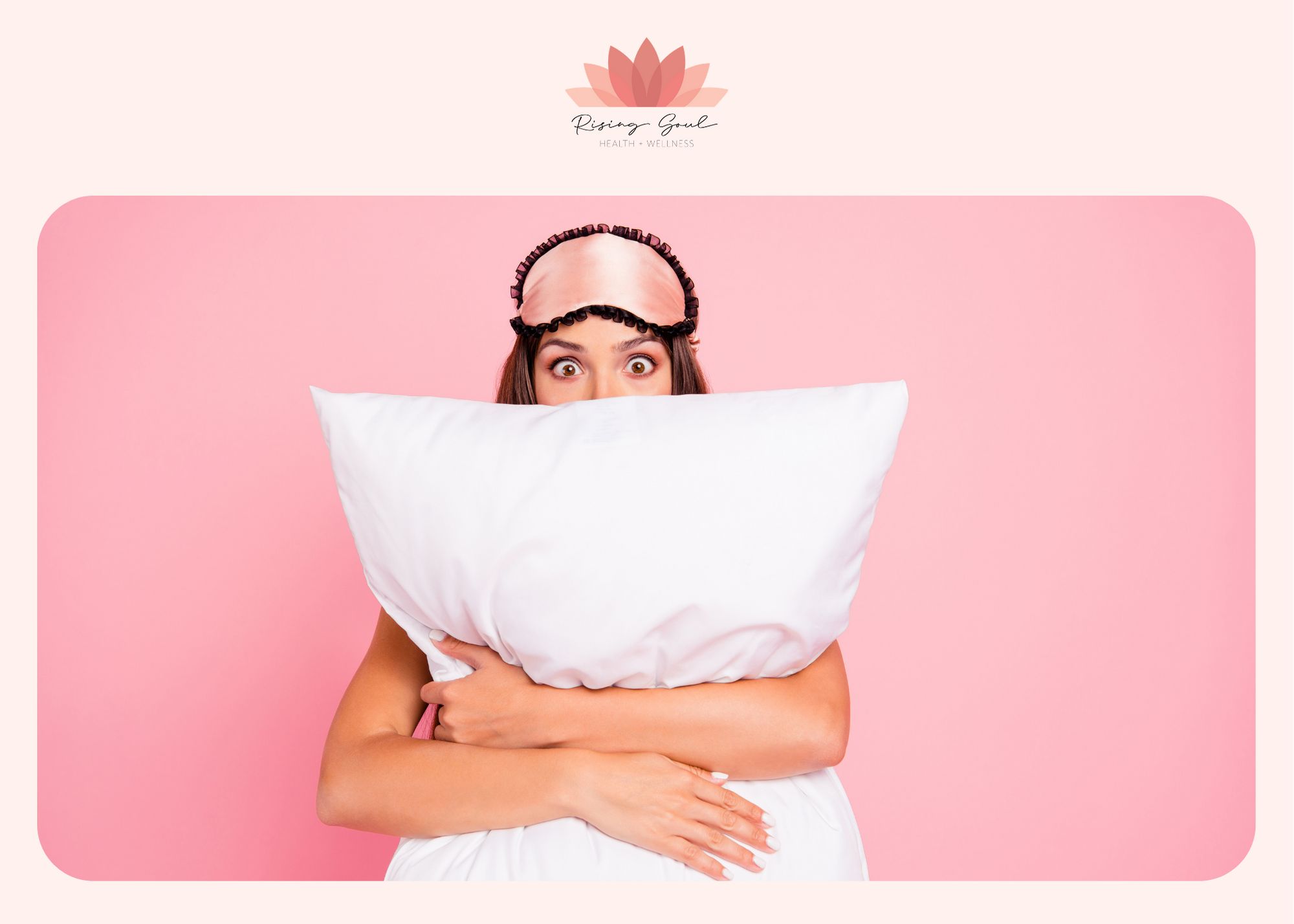Are you getting enough quality sleep?
Do you wake up morning after morning feeling groggy, exhausted, depleted, and not rejuvenated? If so, you may not be getting enough good quality sleep.
If you want to feel energetic and rested it’s imperative that you get adequate, good quality sleep;
without it, our bodies and brains will lose their ability to function optimally. The National Sleep Foundation recommends that healthy adults get between 7 and 9 hours of sleep per night.
The “Sleep in America Poll 2020” (National Sleep Foundation) reports that 50% of Americans feel sleepy anywhere from three to seven days out of the week. Only 16% say they don’t feel sleepy at all in a typical week. Many say that sleepiness impacts their daily activities including mood, mental acuity, productivity and more. Adequate sleep is necessary for our body and brain to rebuild and repair.
Lack of deep sleep causes a disruption in hormones, especially cortisol & and the hormones that control hunger & satiety. Sleep deprivation can contribute to weight gain, decreased sex drive, premature aging of the skin, decreased immune system function, irritability, anxiety, depression, diabetes, & heart disease.
The Sleep Cycle
The sleep cycle consists of regular patterns of sleep, which include REM (Rapid Eye Movement) and non-REM sleep that we cycle between throughout the night. Non-REM sleep creates the first three stages and the fourth and final sleep stage is comprised of REM sleep.
Stage 1
This is the lightest phase of the sleep cycle and generally lasts about 5-10 minutes. During this phase you are somewhat alert and can be woken up easily. Muscles begin to relax and the heartbeat and breathing slow down. Alpha and theta waves are produced during this phase.
Stage 2
During stage 2 of non-REM sleep, heart rate and breathing continue to slow down even more as the body temperature drops. The body is preparing for deep sleep. This stage lasts around 10-25 minutes.
Stages 3
In stage 3 you are in deep sleep, where the brain produces slower deltawaves. There’s no eye movement or muscle activity. During this stage it’s difficult to be awakened and your body is busy repairing muscle and tissue, encouraging growth and development, and improving immune function.
Stage 4 – REM Sleep
REM sleep stands for Rapid Eye Movement and its name is derived from the way your eyes quickly move back and forth behind your eyelids. Our body enters REM sleep about 90 minutes after falling asleep. This stage is when dreams occur due to the increased brain activity. The areas of the brain that help with learning and that are associated with increased protein production are stimulated while in REM sleep which is why this sleep stage is critical for learning, memory, daytime concentration, and your mood.
Many factors can contribute to a disruption in our natural sleep cycle including diet, stress, caffeine intake, alcohol intake, poor sleep habits, and lack of exercise. When you’re not getting enough quality sleep, it can mess with your body’s ability to repair properly, thus leaving you feeling exhausted and depleted when you wake up.
A diet high in processed foods, sugar, and saturated fats affects the amount and quality of your sleep. High sugar intake can cause you to wake up frequently throughout the night. The National Sleep Foundation reports that those who reported higher levels of stress also reported feeling sleepy more often than those with less stress.
Follow these simple tips to increase your sleep quality and quantity:
Disconnect from electronic devices , like mobile phones and laptops, 1-2 hours before bed
Put your phone on airplane mode and turn off your Wi-Fi router at nightwhile sleeping to reduce exposure to EMFs; which can be stimulating
Wear tinted glasses after sundown, this helps boost melatonin. (TrueDark Twilight or Blue Light Blocking Glasses & Computer Glasses | DefenderShield)
Create a relaxing pre-bedtime routine to promote sleepiness: stretching, bathing, meditation, deep breathing, yoga
Establish a sleep/wake rhythm during the week. Go to bed and wake up at the same time every day; ideally, it's best to be asleep by 11pm or earlier.
Reserve your bed for sleep & sex ONLY
Eat nutritious whole foods and eliminate processed foods. Carefully monitor your intake of caffeine, alcohol and sugar
Add adaptogenic herbs or mushrooms like reishi. Adding Organo reishi (Ganoderma) infused coffee or tea daily helps the body deal with stress. Long term use of Ganoderma calms the body and promotes an increase of slow wave sleep. Organo Gold – Organo Gold (myorganogold.com)
Resources:
How Much Sleep Do We Really Need? | Sleep Foundation
Microsoft Word - SIA 2020 Q1 Report.docx (thensf.org)
What Are the Sleep Stages? | National Sleep Foundation (thensf.org)
Stages of Sleep: REM and Non-REM Sleep Cycles (webmd.com)
The Benefits of Ganoderma Lucidum - NB R&D Enterprises
(nanobiotechresearch.com)
The Benefits of Ganoderma Lucidum - NB R&D Enterprises
(nanobiotechresearch.com)

